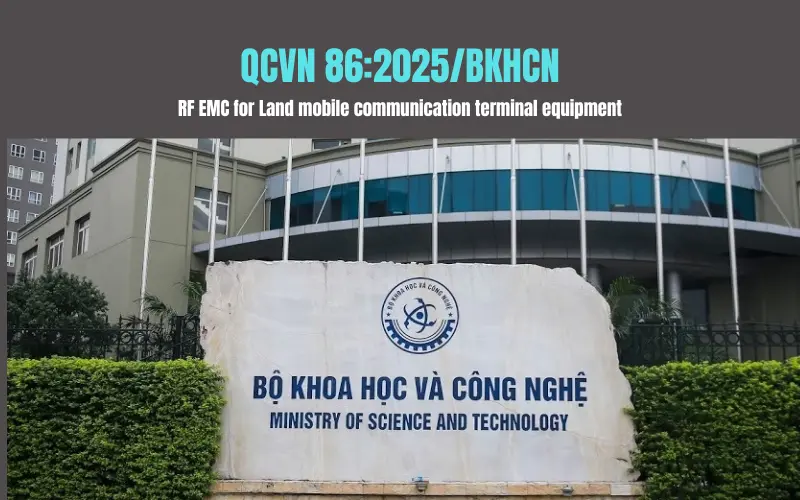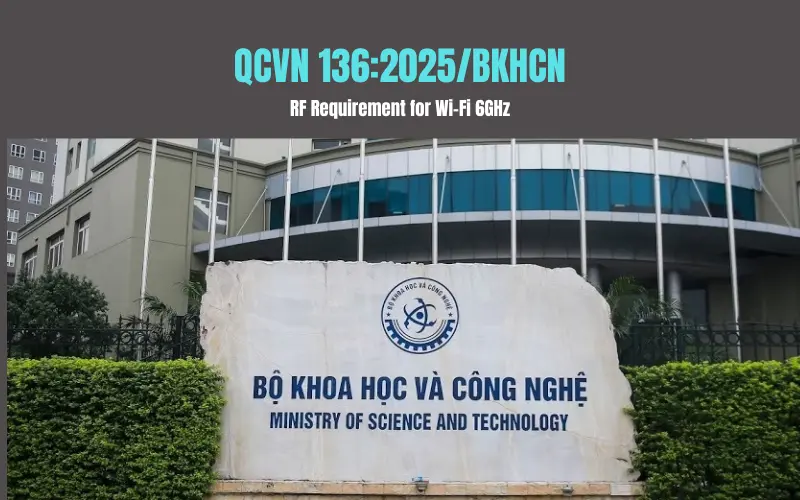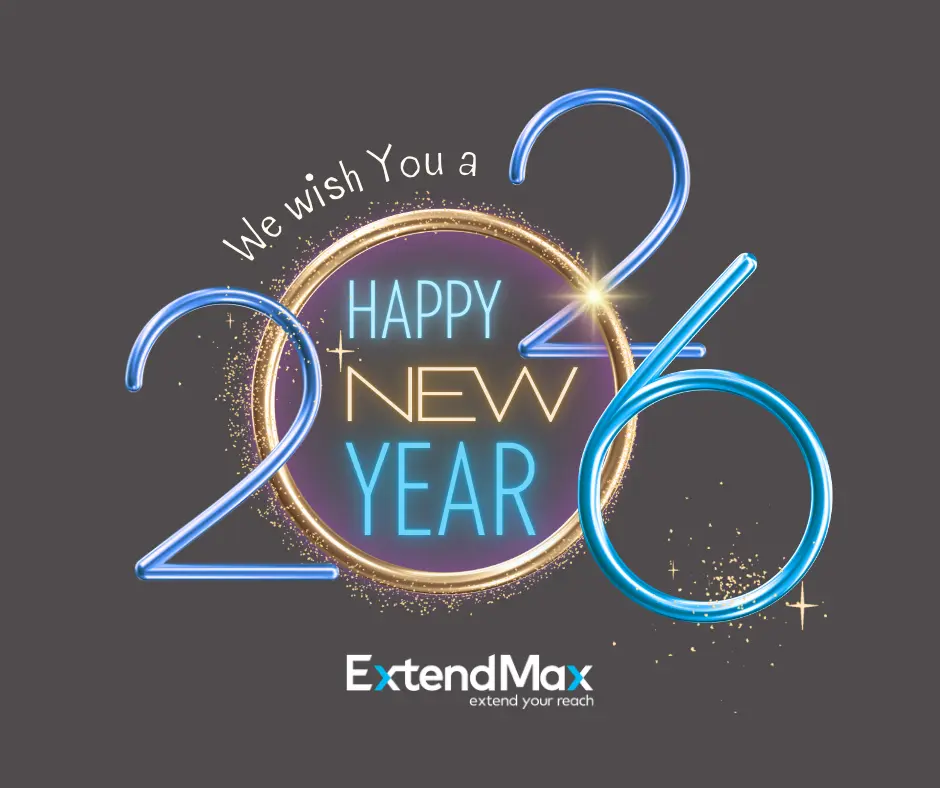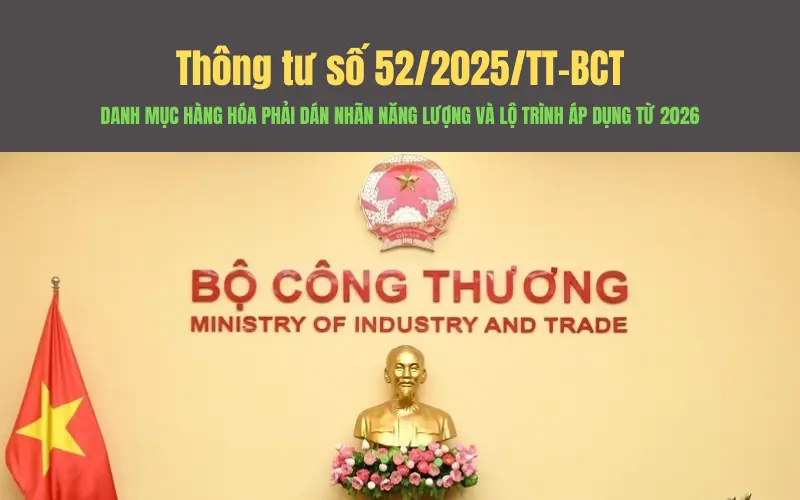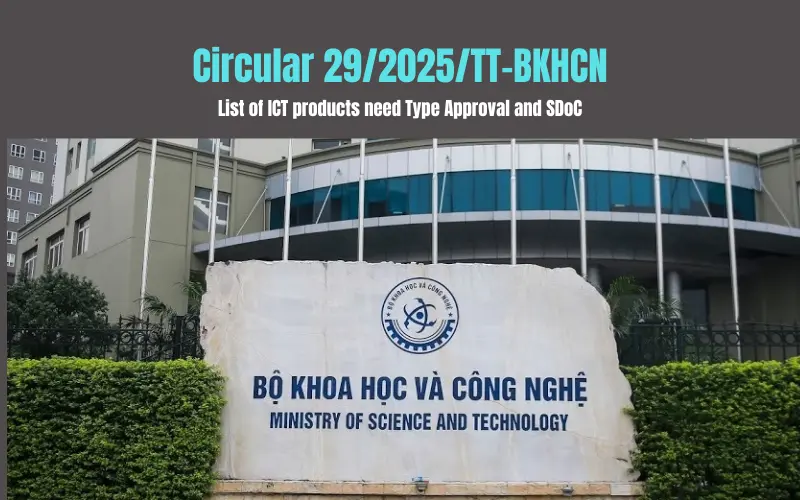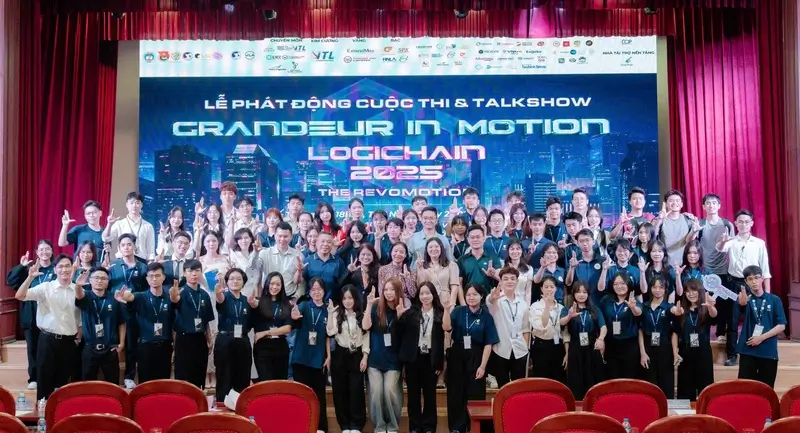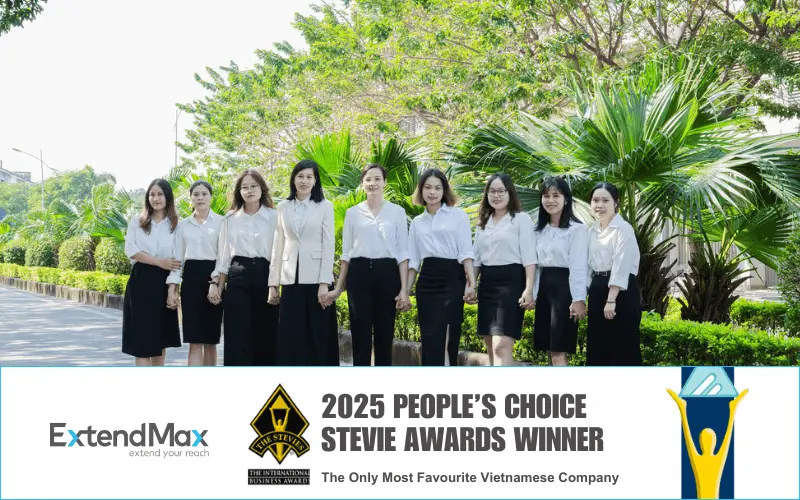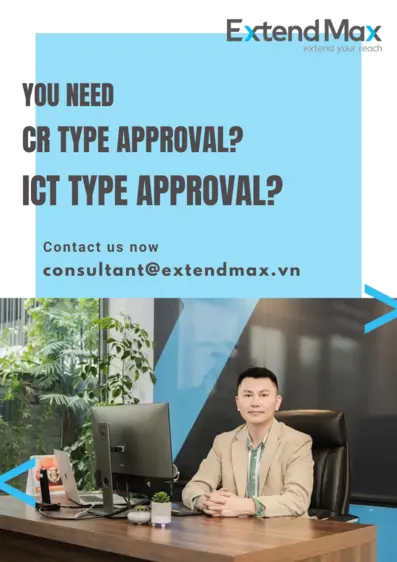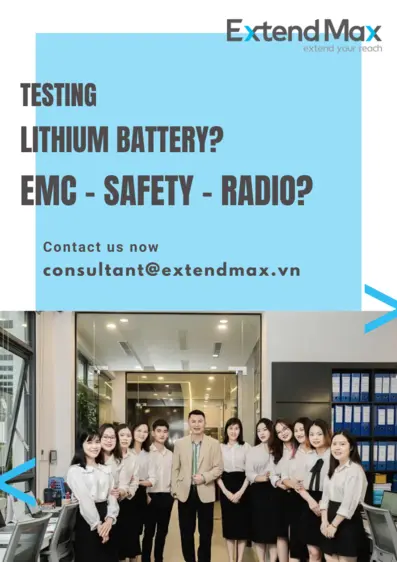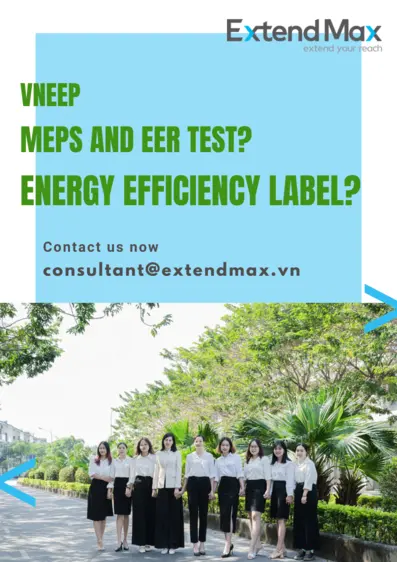Air Conditioners are an increasingly popular cooling device, widely imported into Vietnam to meet the high market demand, with around 2 million units consumed annually. However, many enterprises still face difficulties in the import procedures for air conditioners, as this product category is subject to conditional import regulations. Below, ExtendMax provides comprehensive information on the steps to prepare and carry out the import procedures for air conditioners, helping you clear your goods efficiently, quickly, and in full compliance with legal regulations. In particular, the article includes in-depth guidance from ExtendMax experts on product quality inspections registration, energy performance, declarations, energy labeling, and conformity certification for air conditioners.

Summary of Import Procedures and Certification requirement for Air Conditioners
Summary of Import Procedures for Air Conditioners
-
Identify the import status of the goods: Enterprises need to determine whether the air conditioners they import are prohibited or conditionally allowed. Specifically, used air conditioners are on the list of prohibited imports according to Decree 69/2018/ND-CP (amended and supplemented by Circular 08/2023/TT-BCT).
-
Classify the goods: Determine the HS code of the air conditioners to identify specialized requirements and applicable tariffs for the product.
-
Budget estimation: Prepare costs for inspection, testing, and conformity assessment procedures.
-
Prepare documents and certificates: Include standard import-export documents and specialized inspection certificates.
-
Pay taxes and complete customs clearance:
-
Other specialized procedures after customs clearance (if any): Submit performance test results, declare energy labeling, obtain conformity certification, and declare conformity...
Summary of product quality inspection requirements for air conditioner imports
| Single-unit air conditioner | Applied | Applied | - TCVN 7830:2015 does not apply to ducted air conditioners, except for those with a nominal cooling capacity of less than 8,000 W and designed to operate at an external static pressure of less than 25 Pa. - Air conditioners with a capacity exceeding 26.38 KW (90,000 BTU) or an electrical current > 25A are exempt from conformity certification. - Air conditioners using 3-phase electricity are exempt from any specialized inspection policies. |
| Two-unit air conditioner | Applied | N/A | |
| Air conditioner with three or more units | Applied | N/A |
Starting from January 1, 2025, the current TCVN 7830:2015 will be replaced by TCVN 7830:2021 Additionally, TCVTCVN 13256:2021 will be applied to outdoor units (also known as "condenser units" or "outdoor units") of VRF, VRV, and air conditioners using 3-phase electricity.
Definition and Classification of Air Conditioners
What is an air conditioner?
An air conditioner, also known as an air conditioning unit (often abbreviated as "AC"), is a device designed to control the temperature, humidity, and air quality within a specific space, including both cooling and heating functions.
In Vietnam, air conditioners are most commonly used in the summer to combat the heat. Therefore, in Vietnam, another common term for an air conditioner is cooling machine.
Classification of Air Conditioners
Air conditioners can be classified based on various criteria such as structure, operating principle, application, and technology. Below are some common types of air conditioners
- Based on structure:
-
Single-unit air conditioner: The outdoor and indoor units are integrated into one block. Examples include window air conditioners and portable air conditioners.
-
Two-unit air conditioner: The outdoor and indoor units are designed separately and connected by copper gas pipes and control electrical wires. Examples include wall-mounted air conditioners.
-
Air conditioner with three or more units: Multiple outdoor and indoor units are combined to form an air conditioning system. Examples include multi-split air conditioners, VRV, and VRF air conditioners.
- Based on thermal processing function:
- Single Function Air Conditioner (Cooling Only): Only has a cooling function, cannot increase temperature for heating.
- Dual Function Air Conditioner: Has a reversing valve that allows it to switch functions between cooling and heating, meeting the needs for temperature adjustment in different seasons.
- Based on application:
- Residential Air Conditioners: Used in small spaces like bedrooms or other areas within a home, with small to medium capacity.
- Industrial Air Conditioners: Used in large spaces like offices, restaurants, and hotels, with high capacity and powerful cooling/heating capabilities.
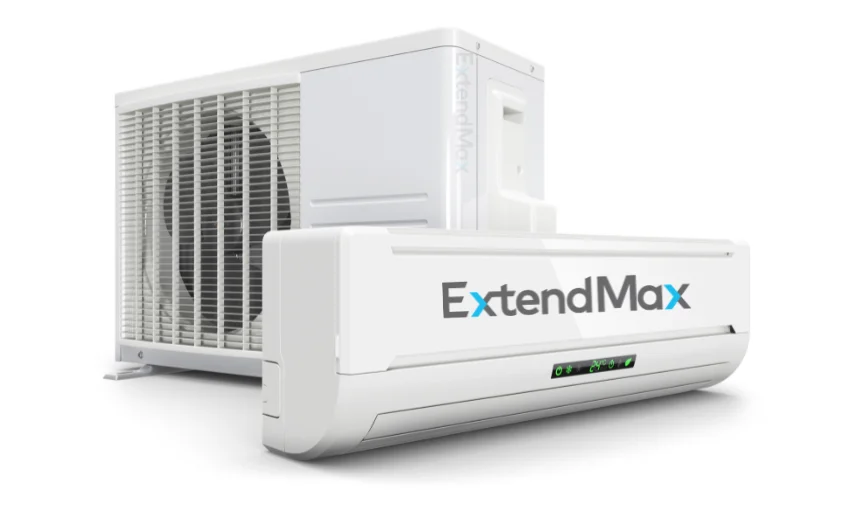
HS Code and Tax Rates for Air Conditioners
HS Code, Product Description, VAT, and Preferential Import Tax Rates for Common Types of Air Conditioners
| HS code | Description | VAT (%) | Preferential Import Tax Rate (%) | Normal Import Tax Rate (%) |
| 8415 | Air conditioning machines, comprising a motor-driven fan and elements for changing the temperature and humidity, including those machines in which the humidity cannot be separately regulated | |||
| 841510 | – The type designed for installation in windows, walls, ceilings, or floors, as a single unit (integrated within the same casing, single block) or as a "multi-functional multi-unit system" (separate outdoor and indoor units): | |||
| 84151020 | – – Cooling capacity not exceeding 21.10 kW | 10% | 30% | 45% |
| 84151030 | – – Cooling capacity exceeding 21.10 kW but not exceeding 26.38 kW | 10% | 30% | 45% |
| 84151090 | – – Other types | 10% | 20% | 30% |
| – Other types: | ||||
| 841581 | – – Incorporating a refrigerating unit and a reversing valve for heat/cool cycle (reversible heat pumps): | |||
| – – – Other types: | ||||
| – – – – Other types: | ||||
| 84158197 | – – – – – Cooling capacity not exceeding 21.10 kW | 10% | 25% | 37.5% |
| 84158198 | – – – – – Cooling capacity exceeding 21.10 kW but not exceeding 26.38 kW | 10% | 25% | 37.5% |
| 84158199 | – – – – – Other types | 10% | 20% | 30% |
| 841582 | – – Other types, incorporating a refrigerating unit: | |||
| – – – Other types: | ||||
| 84158291 | – – – – Cooling capacity not exceeding 26.38 kW | 10% | 27% | 40.5% |
| 84158299 | – – – – Other types | 10% | 15% | 22.5% |
Regulations regarding the import of air conditioners
The legal regulations governing the import of air conditioners are stipulated by various governmental agencies. Air conditioners fall under the category of household electrical appliances and are subject to specialized inspection regulations as follows:
| Product Quality Inspection and CR Type Approval | Energy efficiency testing by the Ministry of Industry and Trade | Other regulations |
| Decision No. 2711/QĐ-BKHCN stipulating the list of Group 2 goods subject to quality inspection, conformity certification, and conformity announcement | Decision No. 14/2023/QĐ-TTg stipulating the list of products for energy efficiency testing and energy labeling | Decree No. 74/2018/NĐ-CP - Regulations on state quality inspection procedures (general application) |
| The consolidated document of Circular No. 11/2012/TT-BKHCN, 13/2013/TT-BKHCN, and 07/2018/TT-BKHCN on technical standards applicable to household electrical and electronic equipment | Circular No. 36/2016/TT-BCT regulating procedures and processes for energy-saving label declaration | Decree No. 69/2018/NĐ-CP (guided by Circular No. 08/2023/TT-BCT) on the list of used consumer goods prohibited from import |
| Circular No. 28/2012/TT-BKHCN and 02/2017/BKHCN regulating conformity announcement and methods for assessing compliance | Decision No. 1182/QD-BCT dated April 6, 2021 of the Ministry of Industry and Trade regulating the list of products subject to industry-specific testing | Limits of hazardous chemical substances (effective from 2026): Refer to ExtendMax's separate article |
| QCVN 9:2012/BKHCN and Amendment 1:2018 QCVN | TCVN 7830:2015 (effective until December 31, 2024); TCVN 7830:2021 and TCVN 13256:2021 (effective from January 1, 2025) |
Lorem Ipsum is simply dummy text of the printing and typesetting industry. Lorem Ipsum is simply dummy text of the printing and typesetting industry. Lorem Ipsum is simply dummy text of the printing and typesetting industry. Lorem Ipsum is simply dummy text of the printing and typesetting industry.
Documents required for importing air conditioners
Based on Article 16 of Circular 39/2018/TT-BTC, the required import documents include:
- Customs declaration form;
- Bill of lading;
- Sales contract;
- Commercial invoice;
- Packing list;
In addition to these, businesses should also prepare other important documents such as Certificate of Origin and product catalogs. For example, using a Certificate of Origin (CO) to claim preferential tariff rates under Free Trade Agreements (FTA).
For air conditioners subject to specialized inspection requirements upon importation, businesses must also prepare:
- Application dossier for quality inspection of imported goods (confirmed by the inspection agency).
- Minimum energy efficiency performance test results or a confirmation letter showing registration for energy efficiency labeling.
-
Refer to our earlier summary table for specific regulatory inspection procedures for each type of air conditioner.
Once all necessary documents are prepared, businesses proceed with customs clearance procedures. For a comprehensive guide on compiling complete import and export documentation, refer to ExtendMax's detailed instructions.
Procedure for Importing Air Conditioners
Step 1: Register for State Quality Inspection
Register for quality inspection of imported goods
| Required Documents | Registration/Applicable Standards | Costs | Processing Time | Place of Submission |
| 1. Export-import document set including: Commercial Invoice, Air Waybill (AWB) or Bill of Lading (B/L) and Purchase Order (P/O) or Contract 2. Catalogue/Datasheet 3. Quality Inspection Registration form (Register using physical paper form, as online public service is not yet available) | Register according to the applicable section for air conditioners in the Appendix - Decision No. 2711/QĐ-BKHCN | No official fees | 2~3 working days | Provincial or municipal Department of Standards, Metrology, and Quality that has a customs checkpoint |
Registration for Energy Efficiency Inspection
| Required Documents | Registration/Applicable Standards | Costs | Processing Time | Place of Submission |
| Product catalogue | TCVN 7830:2015 (before 31/12/2024) TCVN 7830:2021 and TCVN 13256:2021 (từ 01/01/2025) | No official fees | 1~2 working days | Laboratories designated by or registered with the Ministry of Industry and Trade, such as Vinacomin, Quatest 1, Quatest 3, etc. |
Step 2: Open Declaration and Customs Clearance
Submit the physical or online quality inspection registration form and the energy efficiency testing registration form along with the customs declaration. If the business already has energy efficiency test results, they can use these directly without re-registering. After the goods are brought to the company's warehouse, proceed to take samples for energy efficiency testing (self-sampling by the business) and electromagnetic compatibility (EMC) testing according to Method 1 - typical sample.
Step 3: Testing
Minimum Energy Efficiency Testing
| Required Documents | Registration/Applicable Standards | Costs | Processing Time | Place of Submission |
| 1. Catalogue / datasheet 2. One sample product with accessories |
TCVN 7830:2015 (before31/12/2024) TCVN 7830:2021 and TCVN 13256:2021 (từ 01/01/2025)
| Costs depend on the price list of the testing laboratory and the applicable standards. Typical testing fees range from 19,000,000 VND to 38,000,000 VND per model (excluding VAT). | 3~5 days | Laboratories designated by or registered with the Ministry of Industry and Trade, such as Vinacomin, Quatest 1, Quatest 3, etc. |
Electromagnetic Compatibility Testing
| Required Documents | Registration/Applicable Standards | Costs | Processing Time | Place of Submission |
|
1. Catalogue/Datasheet 2. One sample product with accessories 3. Completed test registration form
| QCVN 9:2012/BKHCN and Amendment 1:2018 QCVN | Costs depend on the price list of the testing laboratory and the applicable standards. There is no universal pricing applicable to all types of air conditioners. | 1~3 working days | Laboratories designated by or registered with the Ministry of Science and Technology (MOST) |
Step 4: Perform CR conformity certification and Energy Labeling Declaration
Submit the conformity certification results to the single window portal to complete the conformity declaration procedure for imported batches. For domestically manufactured air conditioners, the manufacturer needs to additionally carry out the conformity declaration procedure at the local Standards, Metrology and Quality Department.
Certification of Conformity for Air Conditioners
| Required Documents | Registration/Applicable Standards | Costs | Processing Time | Place of Submission |
|
1. Request for conformity certification according to the certification organization's template 2. Business registration certificate 3. Technical documents (catalogue, datasheet) 4. Test sample information declaration form 5. Measurement and test results of the equipment 6. ISO 9001 certificate of the manufacturing plant or importation dossier 7. Other forms as required in special cases | Certification of conformity to technical standards on electromagnetic compatibility | Cost varies depending on the testing laboratory's price list and applicable standards | 2-3 weeks depending on the completeness of the submitted documents | General Department of Standards, Metrology and Quality or accredited certification organization |
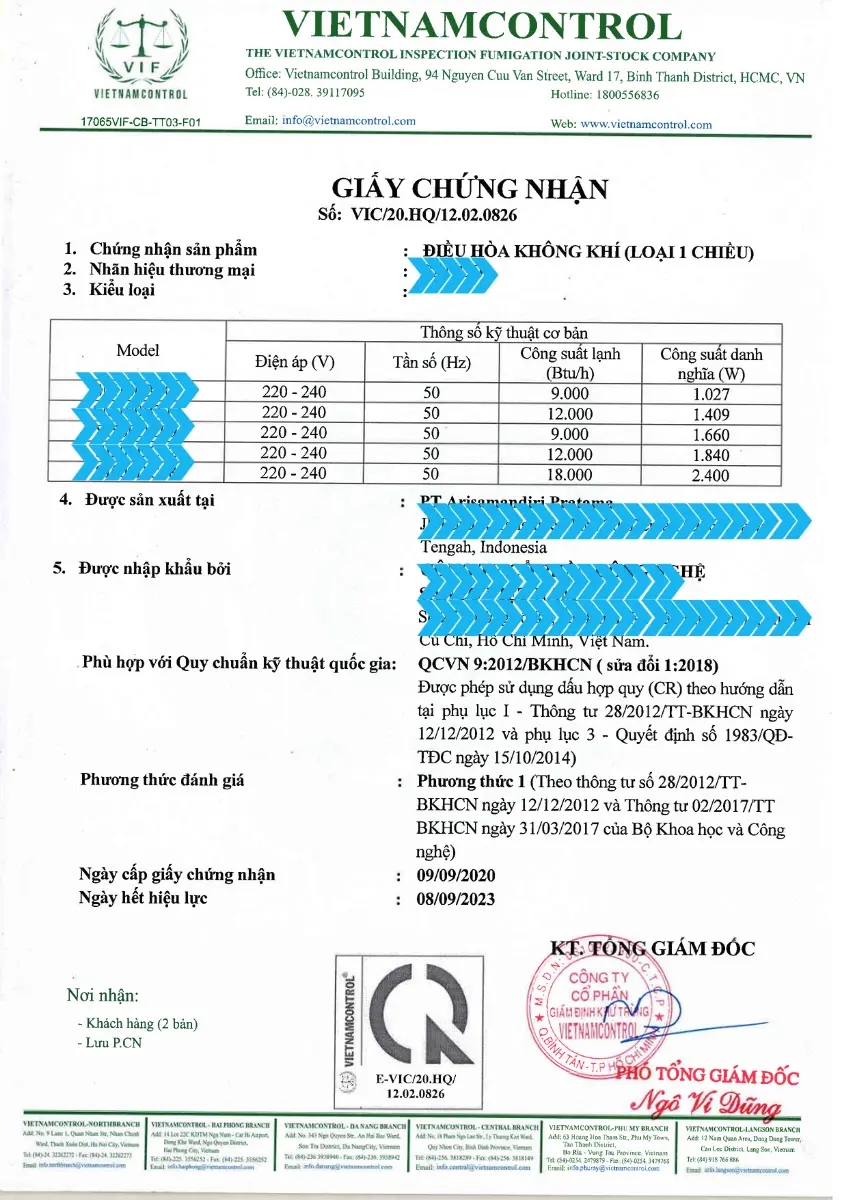
Type approval Certificate for Air Conditioners
Energy Labeling Declaration
| Required Documents | Registration/Applicable Standards | Costs | Processing Time | Place of Submission |
| 1. Energy Labeling Declaration form 2. Energy performance test results 3. Proposed energy label template | Comparison Label | No official fees | 3 - 5 working days | Energy Efficiency Department, Ministry of Industry and Trade, or submit documents via the Ministry of Industry and Trade's online service portal. |
Step 5: Apply the CR conformity stamp, energy label, and any other auxiliary stamps (if applicable) before distributing on the market.
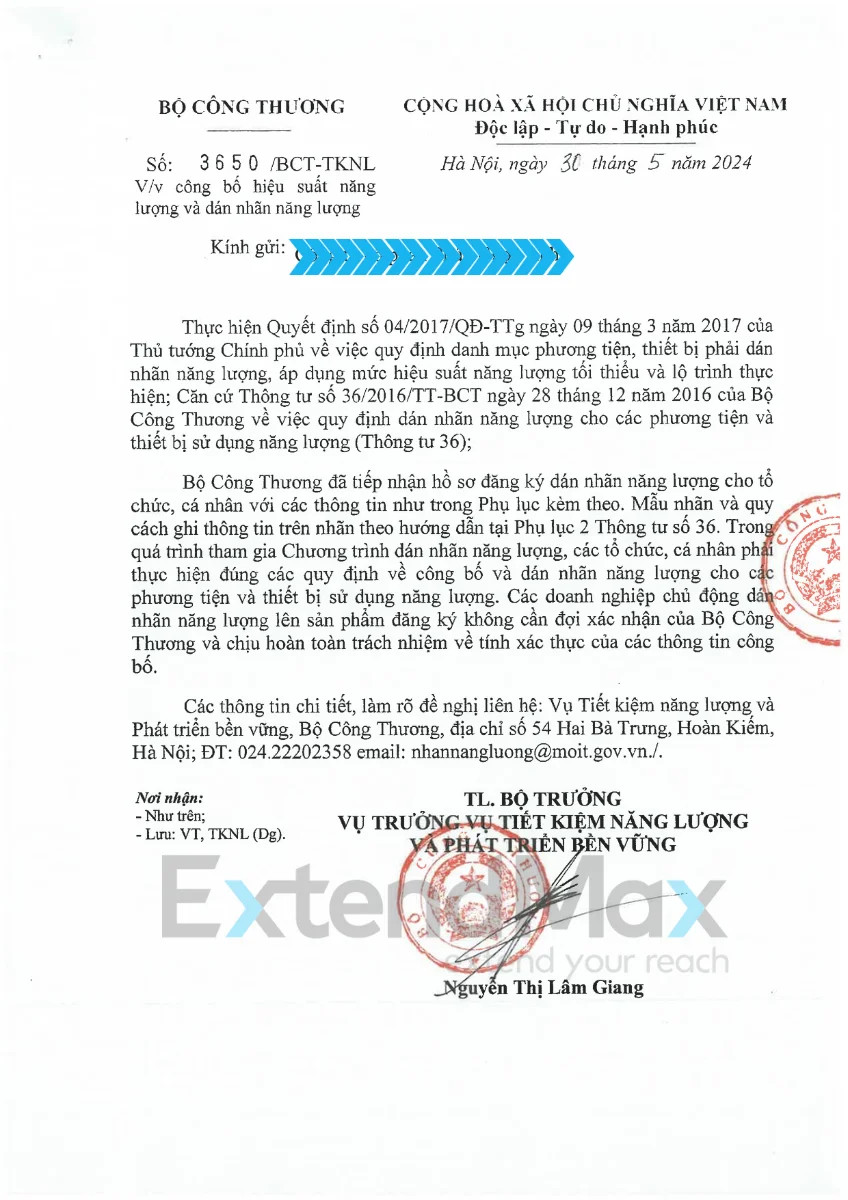
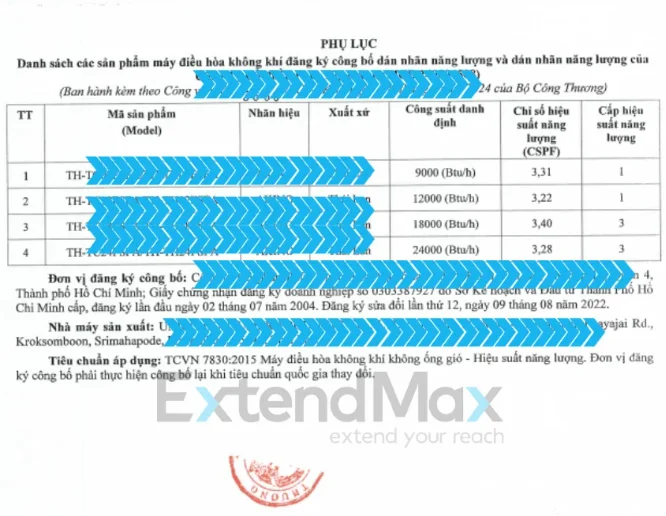
Template of Notification of Acceptance for Energy Labeling Declaration for Air Conditioners
>>> SEE MORE: Import Process for Electric Fans
How can ExtendMax help you in the market access requirements?
As a leading company specializing in consulting for certification and licensing, energy performance testing, and energy labeling declaration across information technology products, office equipment, and household goods, ExtendMax possesses unique strengths in delivering testing services and facilitating energy labeling declarations. This support effectively enables businesses to save substantial time and costs during air conditioner import procedures.
-
ExtendMax evaluates and categorizes products, ensuring businesses accurately identify and obtain all necessary licenses for air conditioner imports. This proactive approach helps businesses plan for timely compliance, manage budgets effectively, and prevent unforeseen issues.
-
ExtendMax assesses product specifications and technical characteristics to determine whether products require energy efficiency testing or energy labeling, thereby optimizing costs for clients. In cases where imported air conditioners are not mandatory for energy efficiency testing, ExtendMax advises on suitable handling options or assists in obtaining certification from the Ministry of Industry and Trade.
-
ExtendMax is well-versed in testing sample requirements and specifications, optimizing client-provided resources to reduce costs and shorten the time required for energy labeling testing and conformity certification processes.
-
ExtendMax acts as a representative for businesses in drafting, submitting registration documents, result files, and procedures for testing, certification, conformity certification, energy efficiency testing, and energy labeling for air conditioners.
Follow us via FB FanPage or LinkedIn to stay updated with the latest information
Please leave a comment and share the article if you fint it useful in your work!
↓ ↓ ↓ ↓ ↓ ↓ ↓


